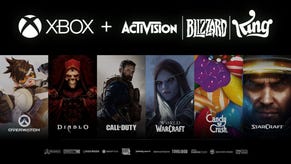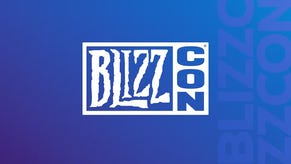A flood from the stream: Gaikai's boss on the turning tide
Cloud gaming may be the future but it's real now, Gaikai's Robert Stevenson tells Brenna Hillier. You shouldn't be setting fire to that physical media just yet, however.
Consumers tend to be more interested in streaming game service OnLive than Gaikai, because the latter isn't being marketed to them; the service itself is the platform which does the marketing. But Gaikai, by its nature as an advertising tool, is something everyone can experience, and that sends a message to gamers that cloud gaming really works.
"At a very high level Gaikai and OnLive are doing the same thing, streaming games from the cloud," Robert Stevenson, Gaikai's interactive entertainment head, agreed.
"After that 50,000 foot point-of-view, the companies head in different directions approaching their target markets."
Not only are they heading in different directions, but they're doing it at very different speeds.
"From what they have stated, they have three data centers and are working towards a new one in the UK later this year," Stevenson said of OnLIve.
"The Gaikai approach to enablement has really been to establish the fastest, broadest reaching network in the world and currently has 24 data centers, all live and streaming away. This gives us a solid reach into three continents and well over a dozen countries.
"We also focus heavily on peering and transit agreements with the major networks and ISPs to make sure our streams arrive efficiently into the 'last mile' to the consumer’s home. This is where we are today and we are continuing to aggressively grow."
Gaikai came out of closed beta in February, and according to Sevenson, has been signing new sites and content "almost weekly" since then.
"Since we have deployed a broad reaching gaming cloud with 24 data centers and counting, gamers in North America and Europe can try some of the best titles today, and our service in Asia - where servers are already running - will become available to the public soon," he explained.
"The fact that the PlayStation 3 and Xbox 360 still offer compelling gaming experiences and need to be fully amortized by the platform holders is a clear case that physical media will still play a role for many years. In terms of the lifecycle of cloud gaming, it is still quite early."
"Today, it is definitely possible to run blockbuster games in all of the key gaming markets. It is early, but it is already being done. As more clients - browsers, TVs, tablets and other thin client devices - become enabled, the points of access for consumers will be everywhere. This will be extremely convenient for gamers, but the build out will take time and it will be years before it becomes the only option for gaming."
On that note, Stevenson shot down my suggestion that physical media is just barely clinging to life.
"In the world of video games, another full generation of hardware, much less two, is still years away," he said. "The fact that the PlayStation 3 and Xbox 360 still offer compelling gaming experiences and need to be fully amortized by the platform holders is a clear case that physical media will still play a role for many years. In terms of the lifecycle of cloud gaming, it is still quite early."
An appreciation of physical media and the slow rollout of broadband globally also contribute to the pastic case's grim grip on life, but it won't hold on forever.
"The tide is turning and much like music, movies and books digital will eclipse physical and probably more rapidly than people think," Stevenson said.
"Even if we discount the current crop of consumers and platforms as only partially transitionary in going fully digital, the inevitable reality is that there is a generation of young people today that only know content consumption through digital channels and their attachment to physical goods like CDs or DVDs is going to be relatively low."
Demolishing road blocks
Before we arrive at the glittering, platform-agnostic future, we're going to have to do something about the pathetic spaghetti delivering dribbles of data to our homes. Asked what kind of connection we're talking about, Stevenson obligingly produced some numbers.
"While cloud services can of course operate on less capable connections, let’s say lower-end DSL at less than 2.5Mbps, the performance won’t be stellar and certainly will fall way short of the wow factor for the latest blockbuster FPS titles running at high resolution," he admitted.
"A more reasonable target would be in the 5Mbps range as a baseline for a nice experience. More bandwidth of course, is always better."
In this regard, ongoing improvements in connections favour Gaikai's approach.
"In many countries particularly in Europe and Asia, 20, 50 and even 100Mbps broadband are becoming normal package offerings from top MSOs and ISPs," the executive pointed out. "Countries that are lacking deep broadband penetration are also steadily improving. 4G/LTE mobile access is also another factor opening up more and more reach."
Even in the shallower reached of the data pond, Gaikai is determined to get content out.
"One of the cool things about the Gaikai solution is that we dynamically present games to the end user based on the capabilities of their connection, Stevenson said.
"If for instance a user has a cable modem set-up at their house that gives them an 8ms ping to our nearest data center and 10Mbps worth of bandwidth, both very realistic numbers in the real world, they will see all of the games publishers have approved at that performance level.
"In the case of a slow connection, we may not pop-up 'play now' offers on Gaikai-enabled websites or on a Gaikai-enabled digital TV the catalogue of games being presented might be altered to show the games that will work best for that user. The key point is that we want to give the gamer a great experience that is suited to their capabilities."
Despite all this, many of us - I don't hesitate to guess most - haven't seen Gaikai in action. Perry hinted this week that Gaikai has some major partner announcements to make in the not-too-distance future, and Stevenson echoed him by teasing new tech.
"We actually have a wide variety of clients live and available, completed and not yet live, or just in the works," he said. "Look for future announcements as we progress."
We most certainly will.










